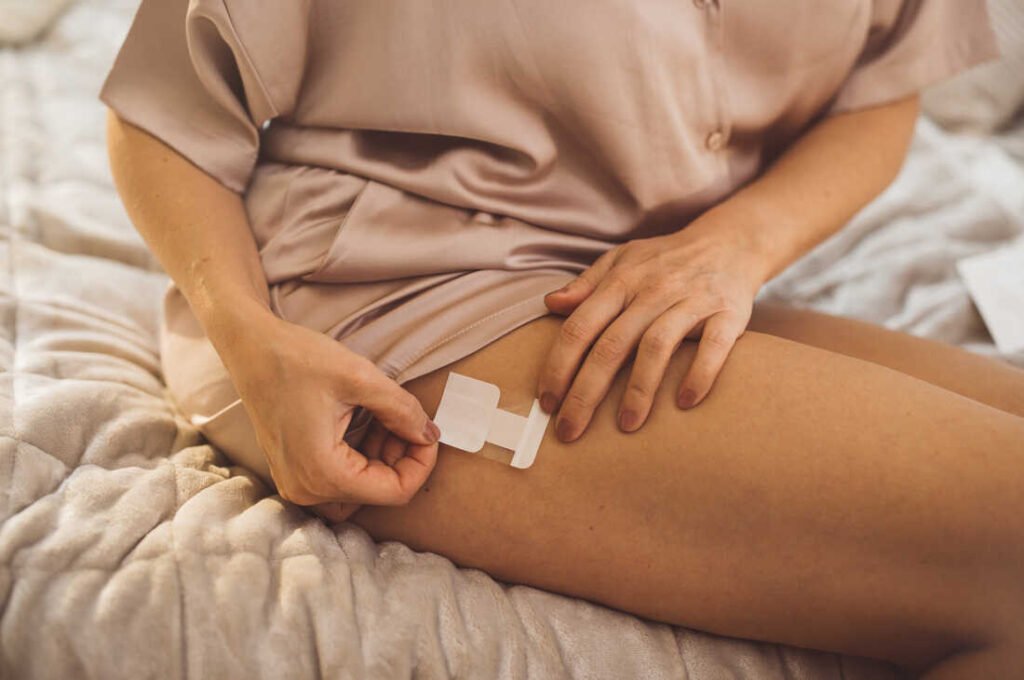Risks vs. Benefits Explained in Korean Women’s Wellness Clinics
Menopause is a natural transition, but for many women, it comes with challenging symptoms—hot flashes, insomnia, mood swings, and vaginal dryness. For those seeking relief, Menopause Hormone Therapy (MHT)—also known as Hormone Replacement Therapy (HRT)—is a popular and effective option. But is it safe?
In this post, we explore the benefits and risks of Menopause Hormone Therapy and how Korean women’s wellness clinics are offering advanced, personalized treatments for global patients.
🔬 What Is Menopause Hormone Therapy?
Menopause Hormone Therapy involves the use of estrogen alone or a combination of estrogen and progesterone to treat symptoms of hormonal decline during menopause. It can be administered in various forms:
- Oral tablets
- Transdermal patches
- Topical creams or gels
- Vaginal rings or suppositories
Korean clinics offer customized hormone therapy with regular hormone level monitoring, minimizing side effects and improving efficacy.
✅ Benefits of Hormone Therapy – What Korean Clinics Focus On
1. Relief from Vasomotor Symptoms
Hot flashes and night sweats are significantly reduced. Clinics in Korea often use bioidentical hormones and cutting-edge delivery systems to optimize relief.
2. Improved Vaginal and Sexual Health
Estrogen therapy helps with vaginal dryness, discomfort during sex, and urinary symptoms. Korean gynecology centers also combine HRT with laser vaginal rejuvenation or PRP (Platelet-Rich Plasma) for better results.
3. Bone Health Support
HRT is proven to reduce the risk of osteoporosis and fractures, especially in women with early menopause. Korean clinics may also recommend nutritional IV therapy and bone mineral scans (DEXA) as part of a full-body wellness program.
4. Enhanced Mood & Cognitive Function
Many patients experience improved mood, memory, and concentration. Some Korean wellness centers combine hormone therapy with brain health programs and anti-aging supplements like NAD+ or glutathione IVs.
⚠️ Risks of Hormone Therapy – And How Korean Clinics Minimize Them
While MHT can offer substantial benefits, it may come with risks—especially if not tailored or monitored. Korean clinics use precision diagnostics and risk assessment tools to reduce these dangers.
1. Breast Cancer Risk
- Combined estrogen-progesterone therapy may slightly increase breast cancer risk.
- Korean clinics use ultrasound and mammography screening before and during treatment.
- Non-hormonal alternatives are considered for high-risk patients.
2. Cardiovascular Events
- HRT started over the age of 60 or more than 10 years after menopause may increase heart attack or stroke risk.
- Korean specialists follow timing hypothesis protocols—starting therapy earlier for better outcomes.
- Patients undergo heart and vascular screening (including carotid ultrasound and EKG) beforehand.
3. Blood Clotting (Thrombosis)
- Oral estrogen may increase risk, but Korean doctors often prescribe transdermal or vaginal formulations, which have lower clotting risk.
🇰🇷 Why Choose Korean Clinics for Hormone Therapy?
Korea’s advanced medical infrastructure makes it a global destination for safe and personalized menopause care.
| Feature | Korean Clinic Advantage |
|---|---|
| 🧪 Hormone Testing | Comprehensive hormone panels (estradiol, FSH, LH, DHEA, etc.) |
| 👩⚕️ Personalized Plan | Therapy tailored to symptom severity, age, family history |
| 💉 Advanced Delivery | Use of natural/bioidentical hormones, creams, and patches |
| 🧘 Integrative Approach | Combines Western medicine with Korean herbal medicine, acupuncture, and stress management |
| 🌍 Medical Tourism Services | English-speaking staff, accommodation help, airport pickup |
👩⚕️ Who Should Avoid Hormone Therapy?
Korean clinics carefully evaluate contraindications. MHT may not be suitable if you have:
- A history of breast or endometrial cancer
- Uncontrolled hypertension
- Liver disease
- Active blood clots or high clotting risk
Alternatives such as non-hormonal medications, acupuncture, or laser treatments are recommended for these groups.
📌 Final Takeaway: Safe When Customized
Menopause Hormone Therapy can be safe and highly effective, especially when administered with care, regular monitoring, and personalization—a hallmark of Korean women’s wellness clinics.
If you’re experiencing menopause symptoms and considering hormone therapy abroad, Korea offers cutting-edge care that prioritizes safety, comfort, and long-term health.




